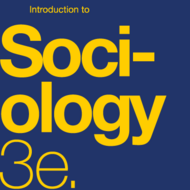
(View Complete Item Description)
This set of lessons looks at a variety of natural disasters from the Black Death of the Middle Ages to Hurricane Katrina in our too-recent memory, to fears of avian flu pandemics that haunt the future through the lens of economic analysis. The contexts were chosen to facilitate the teaching of economic reasoning principles not only in economics courses, but also in history and the other social studies disciplines. Each lesson addresses a question that reflects people's compassionate reaction to news of disaster and develops one or two key tools of economic analysis in answering that question. Case studies of past disasters provide real-world illustrations. Mandated content standards and testing have kicked 'current events' days from the social studies classroom calendar, transforming disasters from 'teachable moments' to curricular inconvenience. Using the economic way of thinking to sift through the chaos of natural disasters, however, reveals threads of uniformity running through the litany of horrors and devastation unique to each event. Once identified, the common features of past disasters form a template for analyzing 'the next one,' allowing teachers to quickly incorporate today's unexpected news into the planned curriculum outline.
Material Type:
Activity/Lab,
Assessment,
Case Study,
Lesson Plan




















